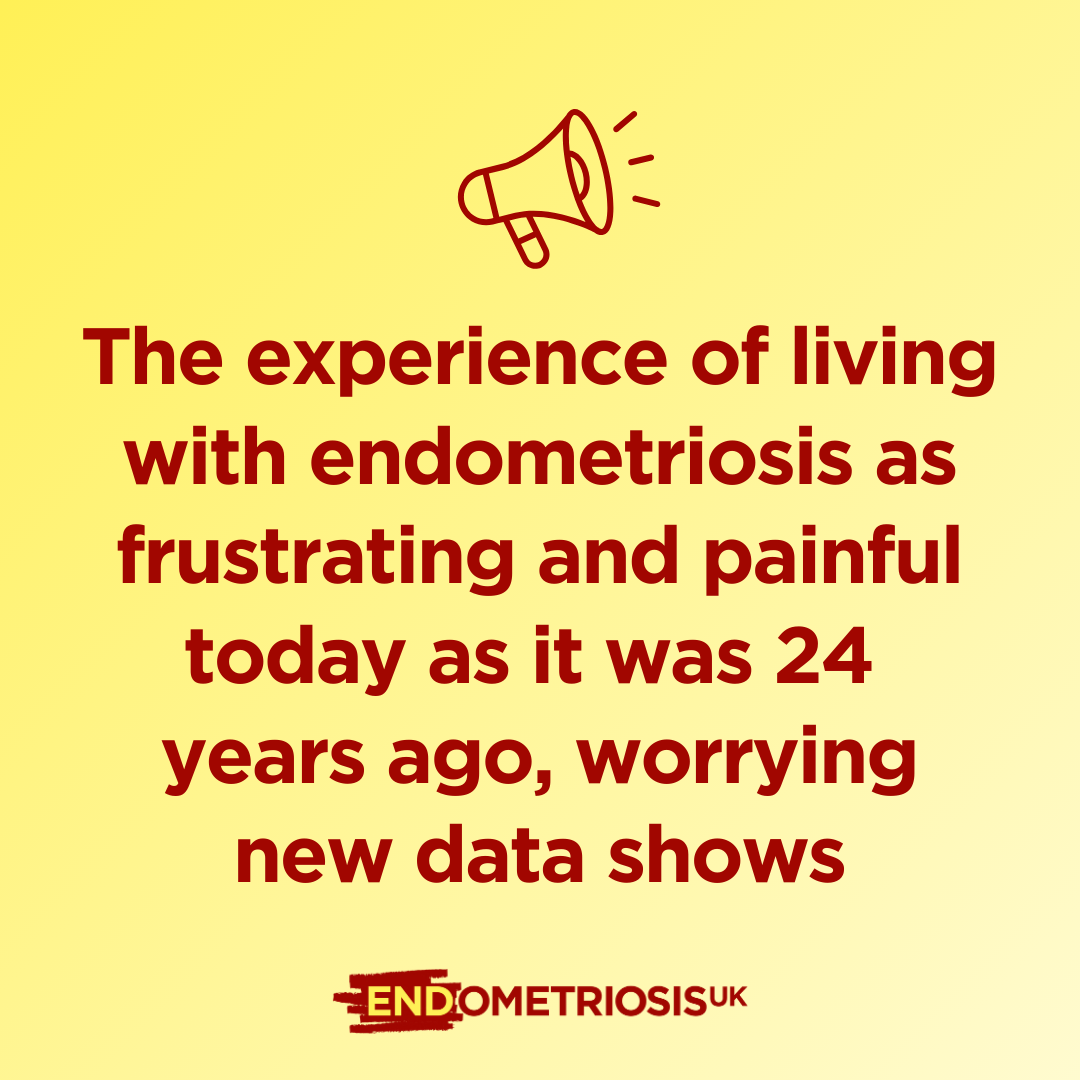The experience of living with endometriosis appears as frustrating and painful today as it was at the turn of the millennium, worrying new data shows.
Many with this common disease have a strong sense of powerlessness, and a negative self-image, according to new research, based on a survey of 1,800 patients carried out by Endometriosis UK and researchers at Leeds Beckett University (LBU) .
The report shows that, on average, patients surveyed in 2023-24 rated their feelings of ‘control and powerlessness’ as 72.3 out of 100 (with 0 being best possible health status, and 100 the worst) - and their sense of self-image as 69.0.
Across most of the 11 areas of the questionnaire – which also include ‘pain’ and ‘emotional well-being', as well as ones relating to other areas of work, life and relationships – scores remain at a similar level, or marginally worse, than in the previous survey in 1999-2000. Endometriosis UK says this is further evidence of the need for a “step change” in endometriosis care, including a pathway which integrates managing both physical and mental health.
Endometriosis affects 1 in 10 women and those assigned female at birth from puberty to menopause, although the impact may be felt for life. As the report demonstrates, endometriosis may significantly impact both physical and mental health.
Common symptoms of endometriosis include chronic pelvic pain, painful periods, painful bowel movements, pain when urinating, painful sex, difficulty getting pregnant and fatigue. Despite being as common as diabetes, it takes an average of eight years and 10 months to get diagnosed in the UK, an increase of 10 months since 2020, research by Endometriosis UK found earlier this year.
The report is based on the Endometriosis Health Profile-30 (EHP-30), developed by the University of Oxford with Endometriosis UK, which enables health practitioners to assess the well-being of those with endometriosis.
LBU compared 2023-24 responses to the survey to the results from 1999-2000 – the full report is available here, and a summary of mean average scores across the 11 areas of the survey is presented in notes to editors.
Emma Cox, CEO of Endometriosis UK, says: “This report is further evidence of the challenges faced by those living with endometriosis, diagnosed or undiagnosed – and that these challenges have not improved in 25 years.
“We’re sure that governments across the UK will be as frustrated as we are that there hasn’t been progress in the last two and a half decades. Whilst it’s a positive sign that nations across the UK now have or are developing women’s health strategies, words need to be put into action. We want to work with Governments and health services across the UK to achieve a real step change in endometriosis care and diagnosis with more holistic medical pathways supporting physical and mental health for those with this potentially life changing disease. Doing so would not only reduce suffering, but save resources in the NHS.”
Professor Georgina Jones, who led the research at Leeds Beckett University, says:
“These troubling figures suggest that there has been little progress in improving the experiences of those living with endometriosis in the past two and a half decades. They also show how living with endometriosis can fundamentally impact a person’s sense of identity and place in the world, hand in hand with the significant pain and physical difficulties that the disease may cause.
"We asked respondents to provide some words summarising their experience of endometriosis. While most of these were negative, for example, they described the debilitating pain, the frustration and loneliness they feel, a number described the sense of community felt by those living with the disease. This underlines how important peer support, both informally and in the way organised by Endometriosis UK, is to those with endometriosis.”
Sanchia Alasia, a volunteer for Endometriosis UK, who was diagnosed with endometriosis in 2010 after 15 years of symptoms, says: “Living with endometriosis, whether you’ve got a diagnosis or you’re still battling to get one, can be hugely isolating and mentally draining, on top of the horrible physical symptoms. I lose count of the number of dinners, day trips, funerals and other engagements I’ve missed because of this dreadful disease.
“I hope this report, and the fact that so many of the numbers are going in the wrong direction, make people sit up and listen to the experiences of those with endometriosis.”
ENDS
Interviews with Emma Cox (CEO of Endometriosis UK), Professor Georgina Jones (researcher at Leeds Beckett University) and Sanchia Alasia (Endometriosis UK, living with the disease for 29 years) are available.
For more information, contact Endometriosis UK on communications@endometriosis-uk.org


